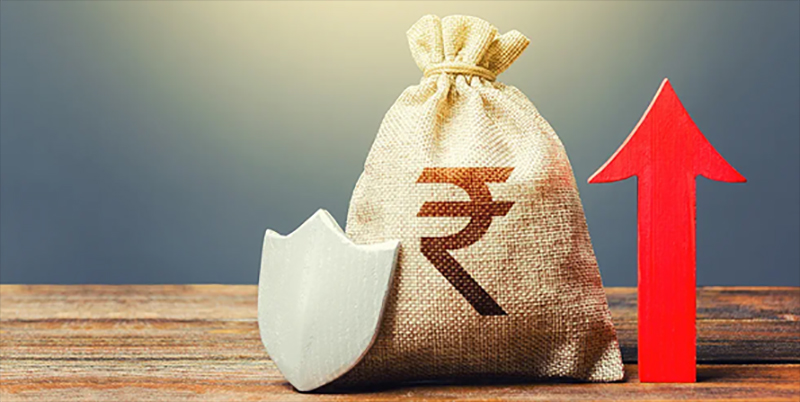 Fixed Deposit
Fixed Deposit
Best Fixed Deposit (FD) Strategies To Follow
A Fixed Deposit is considered to be a low-risk investment product wherein one is guaranteed fixed rates of returns for a particular period. Moreover, investors interested in investing in bank FDs to accumulate wealth should analyse this specific financial instrument in detail. In this blog, we will discuss the various factors that affect Fixed Deposits and different strategies that you can take to ensure you get the best returns.
Factors Affecting Return on Bank Fixed Deposits
Before you look at the strategies that can help you earn maximum returns on Fixed Deposits, it is essential to first consider the key factors influencing returns on Fixed Deposits. Those are:
- Investment size: This means that the amount of interest that the person earns is proportional to the amount of money that he puts in initially. Thus, increasing the amount results in a visible increase in total revenues.
- Interest rates: Several banks offer the provision of competitive interest rates. Selecting the best interest rates by the need to maximise earnings is essential. One must compare the rates of interest offered by various banks before investing. Leading banks such as ICICI Bank offer competitive rates on FDs.
- Investment duration: One has to be very careful while choosing the investment duration. Choosing for a long-term investment is more profitable because of reinvestment. However, investors have to consider other factors such as liquidity ratios and probable penalties for early withdrawal.
How to Maximise Profits on a Fixed Deposit? Essential Strategies to Know
The following are the strategies that will help you get the most out of your bank fixed deposits:
●Understanding the Basics of Fixed Deposit
To get the maximum returns from Fixed Deposit, one must understand the basic features of it. These financial instruments operate on a straightforward principle and that is to invest a sum for a given period and get a fixed rate of interest throughout the tenure. The bank has flexible tenures, so the investors can invest in short-term, medium-term, or long-term terms depending on their needs. FDs offered by banks such as ICICI Bank provide options for monthly, quarterly and on-maturity payouts of interest earned.
● Ideal Range of Principal Amount and its Term
The kind of FD and the period for which money is locked in are some of the most vital determinants of the returns on FDs. Thus, though a higher principal means higher earnings, selecting a longer tenure will allow investors to take better advantage of the compounding effect.
At the same time, it is necessary to pay attention to the issue of the length of the tenancy and the requirements for liquidity. Early withdrawals of funds may be accompanied by penalties. For example, ICICI Bank FDs between 15 months and less than 18 months offer the highest interest rate among the others provided by the same bank.
● Comparing Interest Rates
For one to achieve the highest returns on investment, they have to do research and look for various Fixed Deposit Interest Rates that the banks are offering. Investors at certain banks can maximise their returns on Fixed Deposits by knowing the stated current rates along with promotional schemes. For example, leading banks offer additional interest rates for Senior Citizens.
● Leveraging Interest Payout Options
Choosing the schedule of monthly payments helps in receiving additional earnings along with the salary or addressing urgent necessities. When coupled with the investors’ objectives of expected returns, the same frequencies in the payout can prove handy in managing the cash flows.
● Exploring Laddering Deposits
Laddering Deposits involve the dispersing of investments strategically across the various FDs with varying maturities. This strategy helps improve the company’s liquidity and optimise its cash flow, thus minimising reinvestment risks.
● Maintaining Realistic Expectations
Fixed Deposits (FDs) are safe investment instruments that offer guaranteed returns. Once the FD is opened, the rates are frozen for that FD, protecting it from market fluctuations. However, factors like inflation can reduce the buying power of your money over time. Additionally, the taxes on FD may reduce your effective returns on FD. By considering these external influences, investors can identify relevant trends and set long-term goals for their investment portfolios. Additionally, opting for Tax-Saving FDs can help reduce the overall tax burden.
● Consulting Financial Advisors
A financial advisor can be of great help when it comes to receiving individual analysis and recommendations regarding investments. The advisor is in a position to identify the level of risk and the financial plan for Investments. Moreover, they can identify changes in the market to develop a strategy for maximum returns on Fixed Deposits.
Conclusion
Maximising your returns on Fixed Deposits means having the right strategies in place. Measures such as investing wisely, knowing how much to invest, comparing the rates of various investments, and diversifying can enhance returns. Leveraging competitive rates, flexible terms, and user-friendly features can help investors reap the benefits of investing in FDs. With the right timing and the right use of strategies, investing in fixed deposits and gaining profit from them becomes an easy task.
Support Our Journalism
We cannot do without you.. your contribution supports unbiased journalism
IBNS is not driven by any ism- not wokeism, not racism, not skewed secularism, not hyper right-wing or left liberal ideals, nor by any hardline religious beliefs or hyper nationalism. We want to serve you good old objective news, as they are. We do not judge or preach. We let people decide for themselves. We only try to present factual and well-sourced news.







